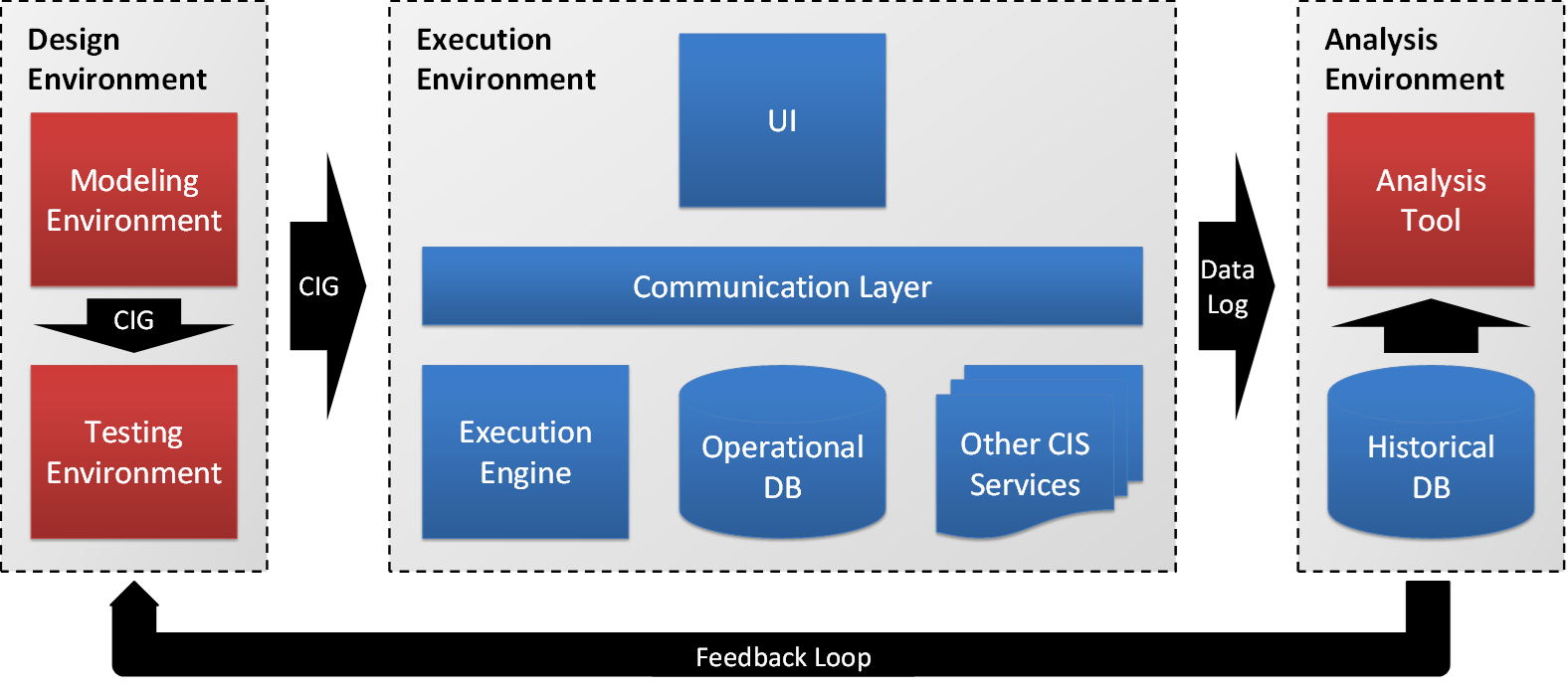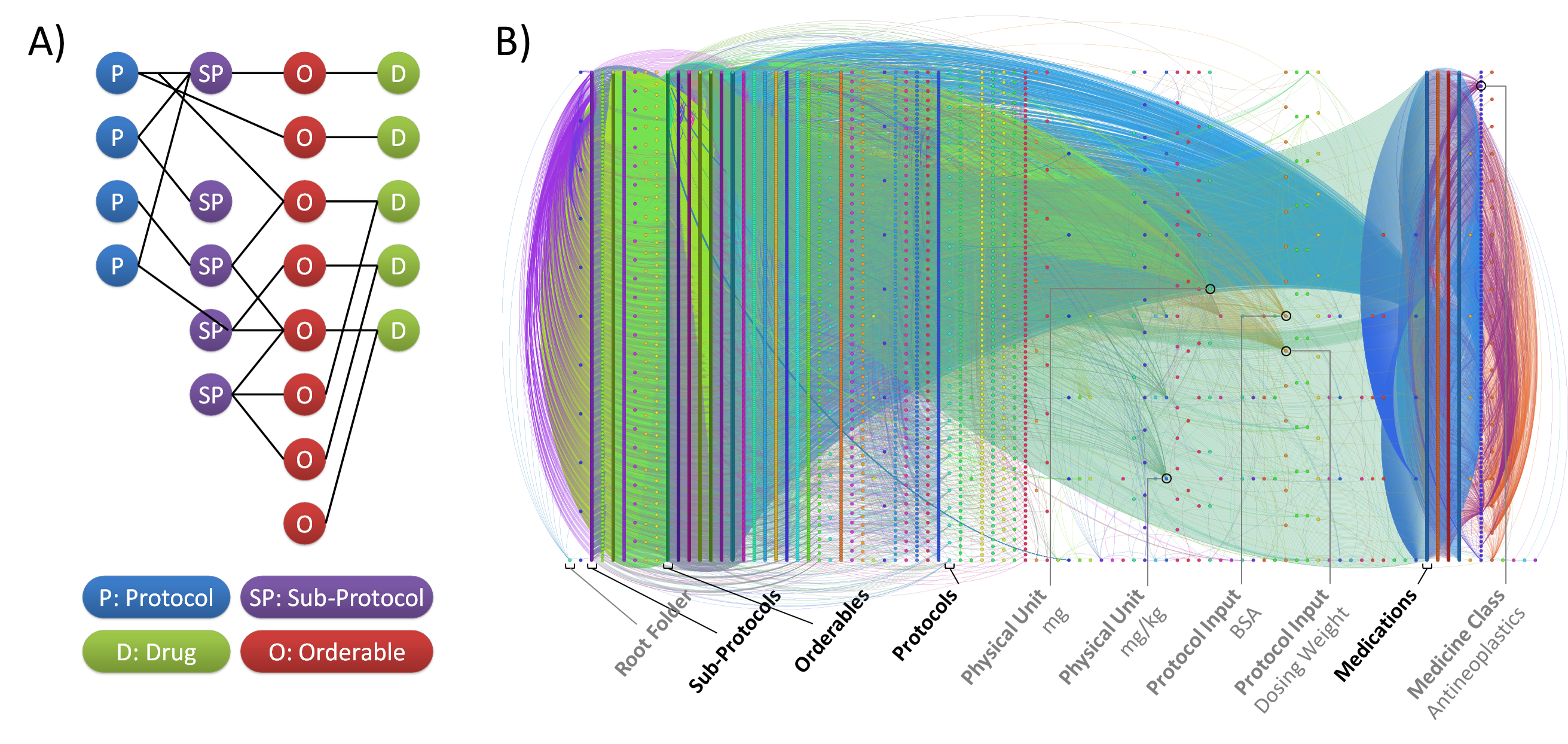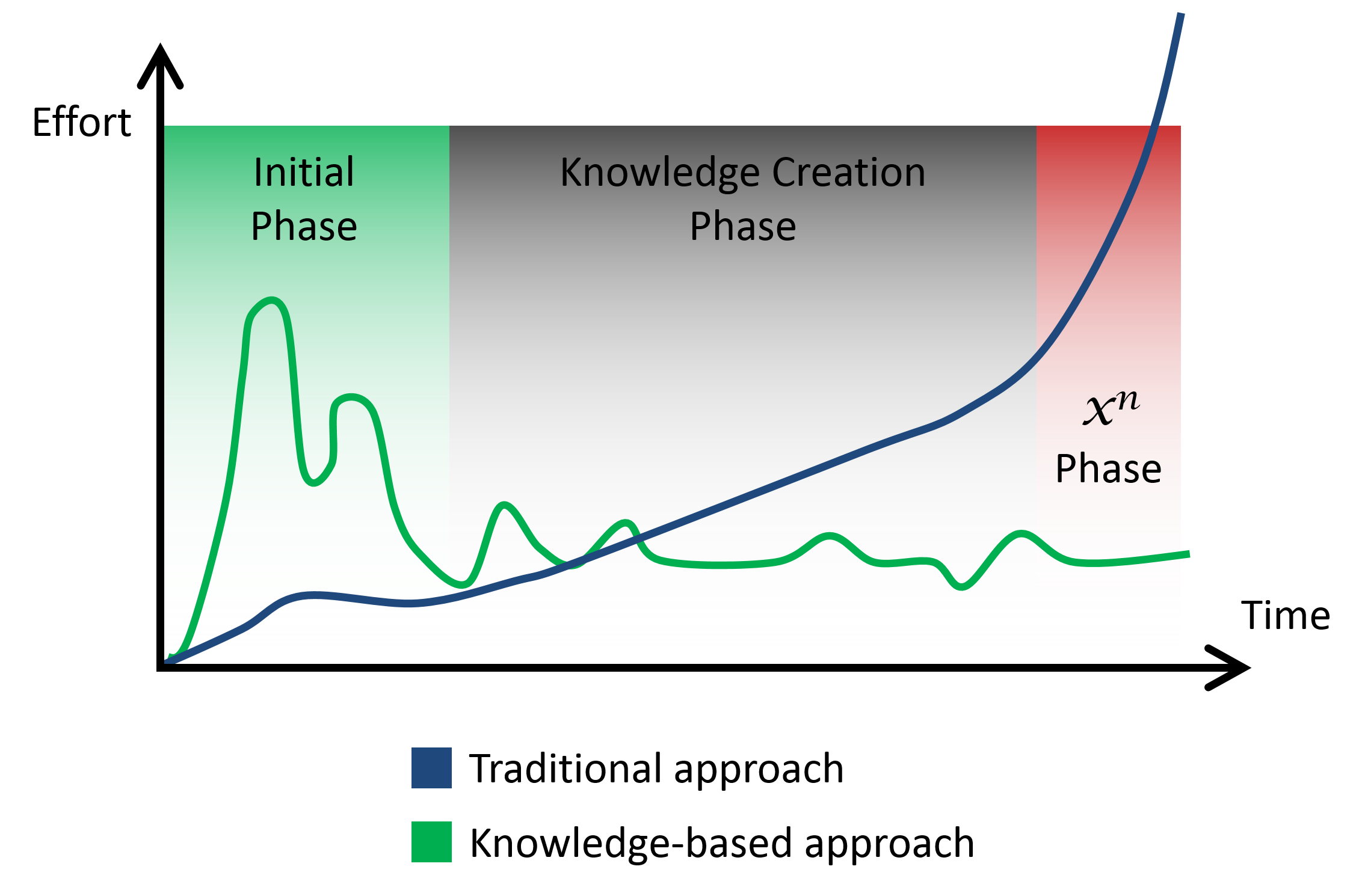VOIS
Edited on 2018-08-28
Vanderbilt Oncology Information System (VOIS)
Project Summary
Motivation
Challenges of cancer management
-
Treatment consists of a complex care plans that span from months to years
-
Care plans are managed by multiple members of the clinical care team
-
Safe and effective plan management requires team knowledge of the past, current and future states of the events in the care plan presented at multiple levels of abstraction
-
Existing computerized physician order entry (CPOE) systems are not optimized for management of longitudinal protocolized team-based care
Goals
-
Standardize Care: Increase compliance with standard of care evidence-based guidelines (1200+) and clinical trial protocols
-
Improve Safety and Efficiency: Coordinate actions to reduce risks and costs
-
Provide Agility and Scaling: Enable rapid prototyping and vendor-independent curation of protocols by subject matter experts (SMEs)
Approach
The execution environment is composed of a model-driven execution engine, a graphical user interface, and system integration interfaces. These interfaces allowed for the integration with a broad range of CISs at VUMC, including the computerized provider order entry system (CPOE), the pharmacy information system (PIS), the nursing documentation system, the electronic medical record system (EMR), and the outpatient whiteboard.
VOIS utilizes a custom-built, visual, domain-specific language to express the executable treatment protocols and related knowledge, all of which has been curated by SMEs. Such formal approach allowed for a tremendous reduction in the ambiguity of the treatment protocols, and through the promotion of component reuse, conciseness and an extraordinary speed in implementation.
Results
VOIS in numbers
Project
-
Time Frame: September of 2010 – November of 2017
-
Builder FTEs: 2 builders (4-10 FTEs total)
Models
-
Number of Protocols: 539 modeled / 421 used
-
Number of Concepts: 5M instances + 6M relationships
Utility
-
Time Frame: September of 2013 – November of 2017
-
Users: 162 planners / 100 signers
with gradual rollout to all outpatient chemotherapy prescribing providers
-
Number of Patients: 5828
-
Number of Instances: 9,891 plans / 292,345 med orders
Implementation Efficiency
Contribution
-
Domain analysis, documentation
-
Solution architecture design
-
Domain model development
-
Domain modeling tool configuration and user education
-
Model translator creation for model evolution, analysis and visualization
-
Contributed to UX (user experience) design
Publications
Mathe, J.L.; Levy, M. The ephemeral life of the computer interpretable, guideline-driven Vanderbilt Oncology Information System. Presented at the Mobilizing Computable Biomedical Knowledge (MCBK) Summer Meeting, National Library of Medicine (NLM), Bethesda, MD, p. 1 2018.
Mathe, J.L. Practical Knowledge Engineering for Clinical Decision Support. Presented at the Biomedical Informatics Seminar, Vanderbilt University 2018.
Mathe, J.L. The Precise Construction of Patient Protocols: Modeling, Simulation and Analysis of Computer Interpretable Guidelines. Vanderbilt University, Nashville, TN 2012.
Mathe, J.L.; Sztipanovits, J.; Levy, M.; Jackson, E.K.; Schulte, W. Cancer Treatment Planning: Formal Methods to the Rescue, in: 4rd International Workshop on Software Engineering in Health Care (SEHC 2012). Presented at the SEHC 2012 Workshop @ ICSE, Zurich, Switzerland 2012.



Connect with Vanderbilt
©2026 Vanderbilt University ·
Site Development: University Web Communications